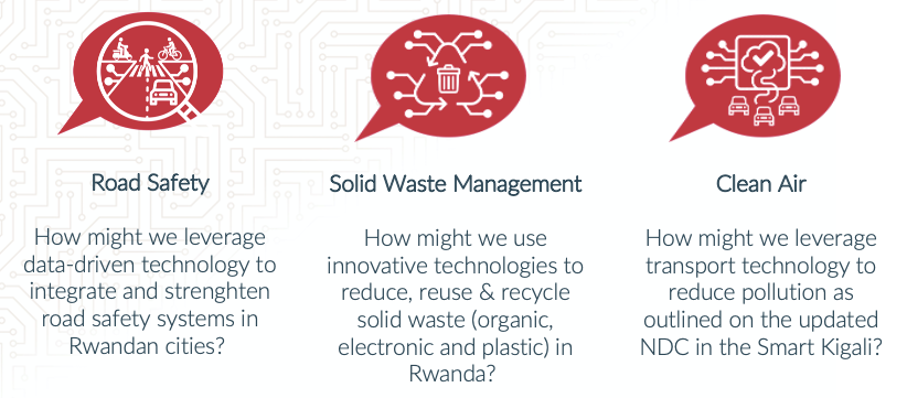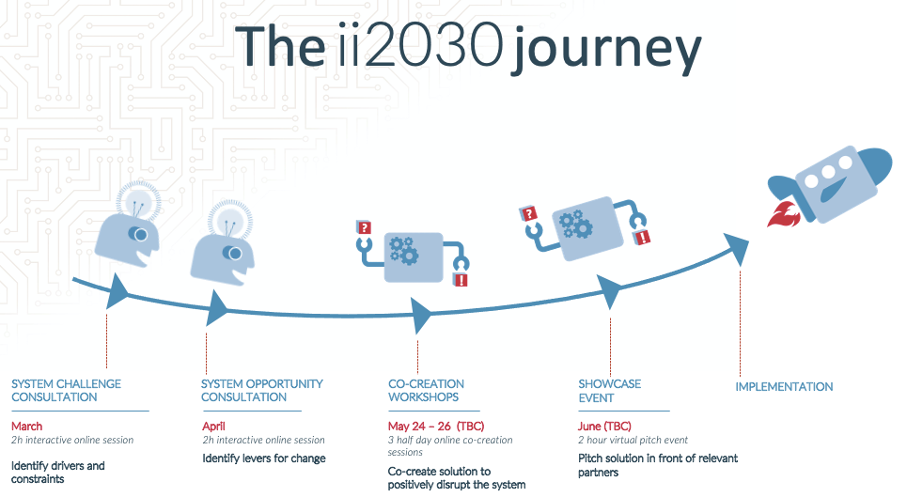The Inclusive Innovation 2030 (ii2030) is Endeva’s flagship initiative that facilitates systems change for a more inclusive and sustainable society by 2030. With a unique methodology anchored by key stakeholders we co-create systems innovations. Results of past editions show that it works. Click here to learn more about previous ii2030 editions.
The Rwanda Smart City Edition of ii2030 is set to address some of the critical challenges the Rwandan capital, Kigali, is facing in the context of climate change, growing income and urbanization. Over the past few years, Rwanda has made great strides in digitalization, emerging as a regional leader. Endeva’s ii2030 intends to catalyze the use of technology for the achievement of Sustainable Development Goals (SDGs).
This edition of ii2030 has three tracks, set out to advance Kigali’s smart city agenda:
- The track on road safety aims to leverage data-driven technology to integrate and strengthen road safety systems in Rwandan cities
- The track on solid waste management aims to develop innovative technologies and circular approaches that help reduce, reuse and recycle organic, electronic and plastic waste in Kigali
- The track on clean air aims to boost the mitigation & adaptation measures outlined on the updated NDC to reduce traffic-related air pollution in the Smart Kigali.
The Smart City Rwanda Edition is powered by the German Ministry for Economic Cooperation and Development (BMZ) and realized in close collaboration with the Smart Cities initiatives run by the Rwandan government, such as the Rwandan Ministry of Information Technology and Communication and Innovation (MINICT).

How can ii2030 change systems? ii2030 begins with a problem that we perceive as an opportunity. It goes on to co-create a systemic solution with a diverse group of innovators and ends with concrete action on the ground that brings us closer to our vision.
ii2030 uses a new set of methodologies to change systems. By combining design thinking methods with systems practice methods we do a rapid prototyping of systemic solutions based on real challenges. The ii2030 methodology is structured along three phases over a period of 6-9 months. This allows us to identify opportunities, co-create relevant solutions and implement the change.
Inception: We explores with desk research and interviews with the most important stakeholders like Rwandan ministries, GIZ, large companies and start-ups which concrete topics are most relevant, impactful and represent actionable systems to work with in the Rwandan Smart City space.
Consultation: Each ii2030 track starts with an open expert consultation to understand challenges in the system and identify leverage points for change. Bilateral interviews and curated multi-stakeholder consultations are held. We engage a wide audience to learn about existing solutions, the people behind and the constraints they face. We also identify participants for the co-creation phase
Co-creation: In the co-creation phase, a small group of core stakeholders develop a prototype solution to reconfigure the system using our systems design methods. Stakeholders get exposed, inspired and connect deeply with partners that provide a context for testing and stand ready to lead the implementation. Each ii2030 track ends with concrete action on the ground that brings us closer to our vision.

We invite you to join the process! You can apply to join one of the three tracks on the www.ii2030.com website.

